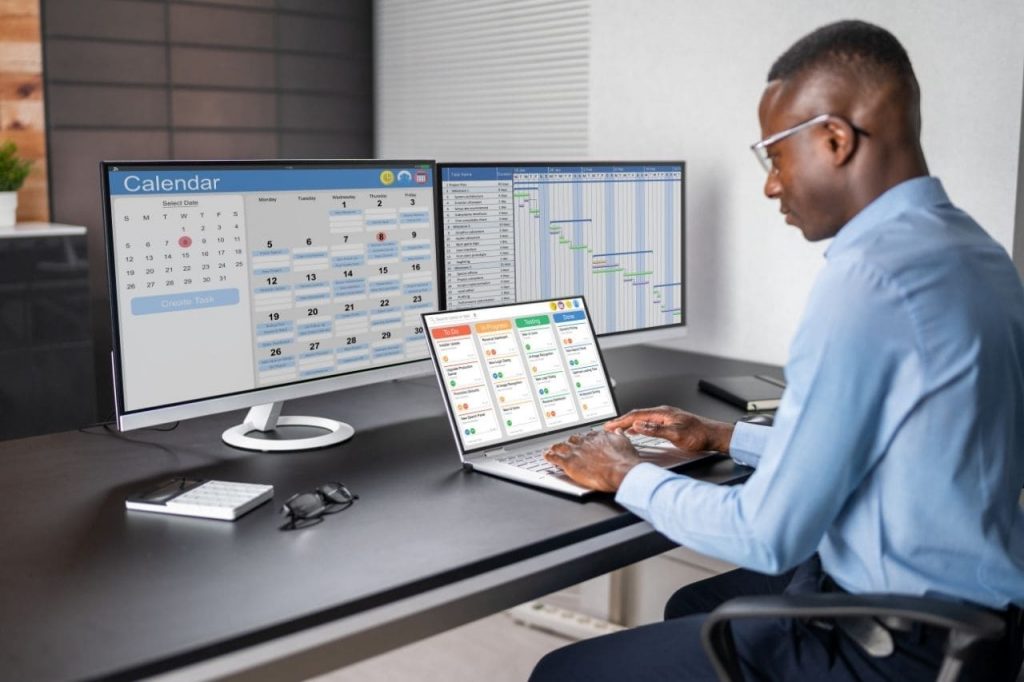Due to the competitiveness in today’s world of business, it’s pretty important to know which tool will ease operations and increase productivity. One of the most important investments any business can invest in is software solutions for managing and optimizing day-to-day activities. On the flip side, deciding which of many options available is best can be a challenge. This article looks at some key considerations to be made while buying any software solution alone payroll software for a small business.
Signs Your Business Needs Software Solutions
Before discussing the key factors to take into consideration when buying the software, it is first essential to identify if your business needs one or not.
Operational Challenges
Operational inefficiencies manifest in much stronger and clearer ways as businesses grow. Delays, errors, and bottlenecks may show up in the output of a firm where manual intervention rules. This might pertain to any business process: inventory management, project coordination, or customer relationship management. Once operational inefficiency associated with an acute lack of automation in a field is felt by your business, it may be the right time to buy business software that automates the same tasks.
Employee Morale and Performance
It’s easy to see that employee satisfaction is closely correlated to productivity. The more monotony or painful a process done by hand, the more morale among employees will suffer – along with performance. If you find your employees less engaged, or making more mistakes, consider offloading some of that budget into intuitive software to lighten the load and help boost the overall performance of employees.
Financial Symptoms
Other signs include cash flow problems, late billing, or very slow financial reporting. All this is important in order for informed decisions to be made. One of the main benefits of payroll software is that it can provide instant insight and automation of the finances of the business, hence easing operations.
Considerations Before Purchasing Business Management Software
Once the need is recognized, there are certain factors that should be considered before buying software solutions.
1. Budget and Cost Analysis
The budget is just about the determining factor whenever anyone contemplates buying any software solution. Sometimes, people get completely dazzled by the lowest quotation coming from some companies and just overlook a proper cost analysis. One should know upfront the subscription fees, its maintenance costs, future costs for upgrades if any, and whether the return on investment will be good with that software. One should know upfront the cost of EMR, including subscription fees, maintenance costs, future costs for upgrades if any, and whether the return on investment will be good with that software.
2. Scalability and Growth in the Future
While purchasing software, it is very important to determine how your company will grow in the future. Will the software scale with your business? Make sure you go for solutions that are flexible enough to accommodate more users or perhaps even features and modules as your business continues to grow. It ensures scalability so that the system does not become obsolete as time goes by and your business evolves.
3. Integration with Existing Systems
Seamless integration with your current systems is another important factor to reckon with. Be it CRM, ERP, or accounting software, the new management system software should integrate with your on-hand tools flawlessly. This ensures consistency of data and is devoid of redundant data entry, saving time and reducing the chances of any errors.
4. Ease of Use and Training Requirements
Yes, even the most sophisticated software is rendered irrelevant if your team cannot use it effectively. When buying software business solutions, ensuring ease of use is a priority. The software package needs to be intuitive in use such that minimum training is necessary for the operation of that software package. This being said, secondly, inquire about the vendor’s training and subsequent support services. Indeed, comprehensive training may limit this learning curve; this will actually enable your team to maximize the usage of the software much earlier than they would have otherwise.
5. Vendor Reputation and Support Services
Past history of the vendor and its reputation for trustworthiness is a very important concern for a buyer. This can be done through researching the history, customer reviews, and case studies regarding the vendor. Apart from this, firms should investigate the support services extended by the vendor. Customer service can go a long way in helping, especially during those initial implementation sessions or if something goes wrong after that.
6. Compliance and Security Features
In the day and age of frequent data breaches, one should ensure that the software is compliant with the industry standard and features highest grade security measures. Be it GDPR, HIPAA compliant video conferencing software, or local payroll laws, the solution should keep your business compliant. Additionally, look at data encryption, regular updating, and access control to secure sensitive business information.
Specific Considerations for Buying Payroll Software for Small Businesses
While the factors above apply to most business management software, more factors come into consideration when it comes to payroll software, especially for a small business.
Compliance with Local Payroll Laws
Payroll laws are never straightforward and differ with every region. While buying payroll software for a small business, ensure that it is updated according to the local rules and regulations regarding deductions of taxes, calculation of benefits of employees, and labor laws. This helps you stay out of legal complications and maintain your payroll processes accurate and compliant.
Ease of Use by Non-Technical Staff
These are smaller companies that cannot afford to have a full-time IT person, so ease of use is of paramount importance. The payroll software should, therefore, be simple in nature and not require highly technical knowledge in its application. Its interface should be friendlier for the non-technical staff members who handle it. This therefore minimizes the chances of errors and lessens the need for in-depth training.
Cost vs. Benefits Analysis for Small Businesses
Small businesses are usually limited, and buying payroll software has to be subjected to some cost-benefit analysis. Compare the features and capacities of the software with the price of purchase for value-for-investment assurances. Take your employee headcount into consideration, the frequency of payroll, and how complex your payroll is.
Timing Your Purchase: When Is the Right Time?
Timing is everything when buying business management software. Consider buying software at the beginning of a fiscal year or at a business slow point to minimize transition and implementation headaches. Be on the lookout for promotional pricing and discounting, especially during holidays and year-end closeout sales, to realize substantial economies.?
The right business management software is an important investment decision for your business. Your decision will determine your business’s efficiency and progress. By looking at budget, scalability, integration, ease of use, vendor reputation, and compliance, you will be better poised to make an informed choice that would suit your business needs. Compliance with payroll laws and ease of use are added factors a small business should look at in buying payroll software. Timing your purchase strategically will help you get the most value from your investment. If a proper plan and consideration are made, the right software can surely be one of the strongest tools for driving your business to success.









